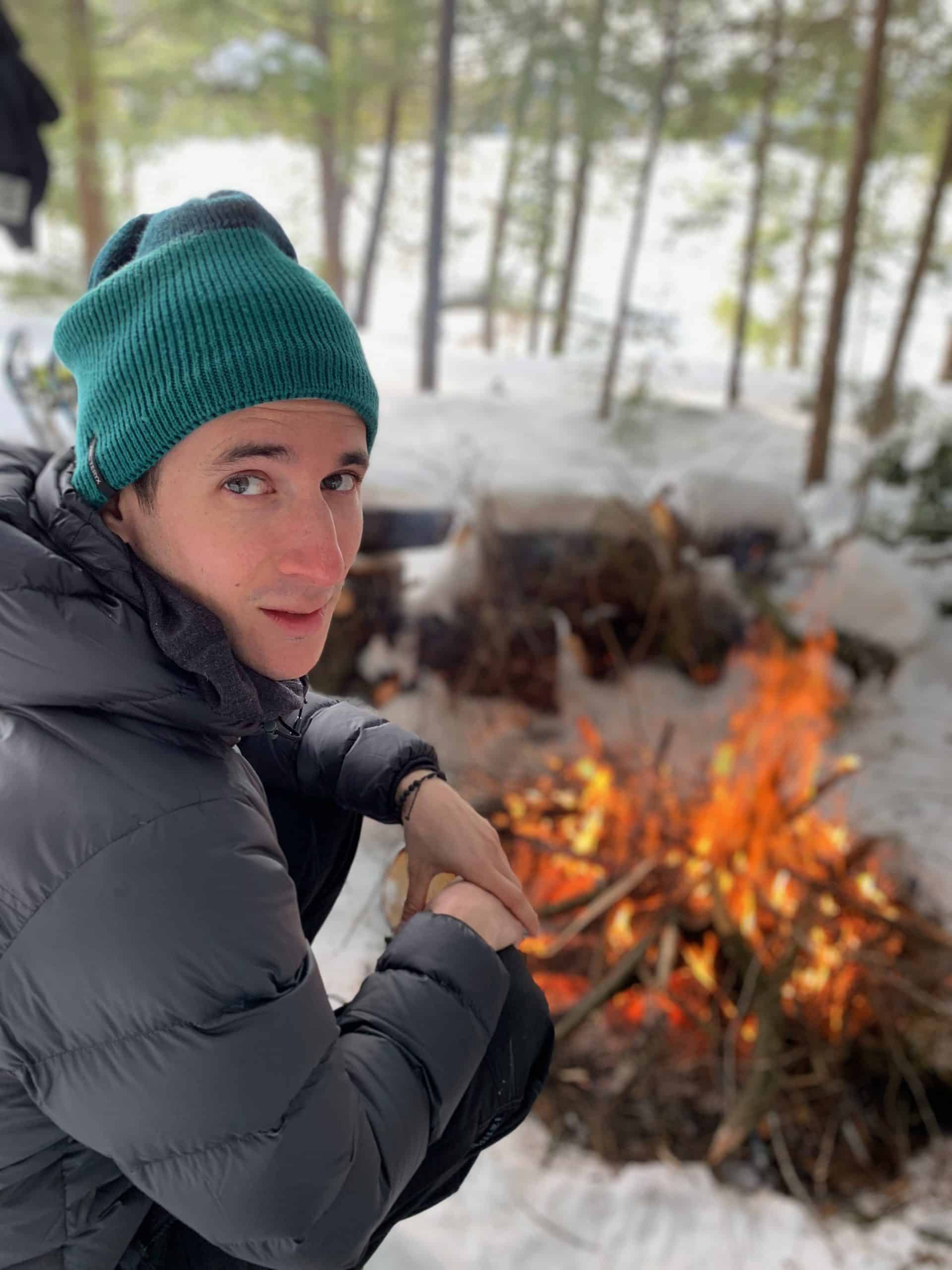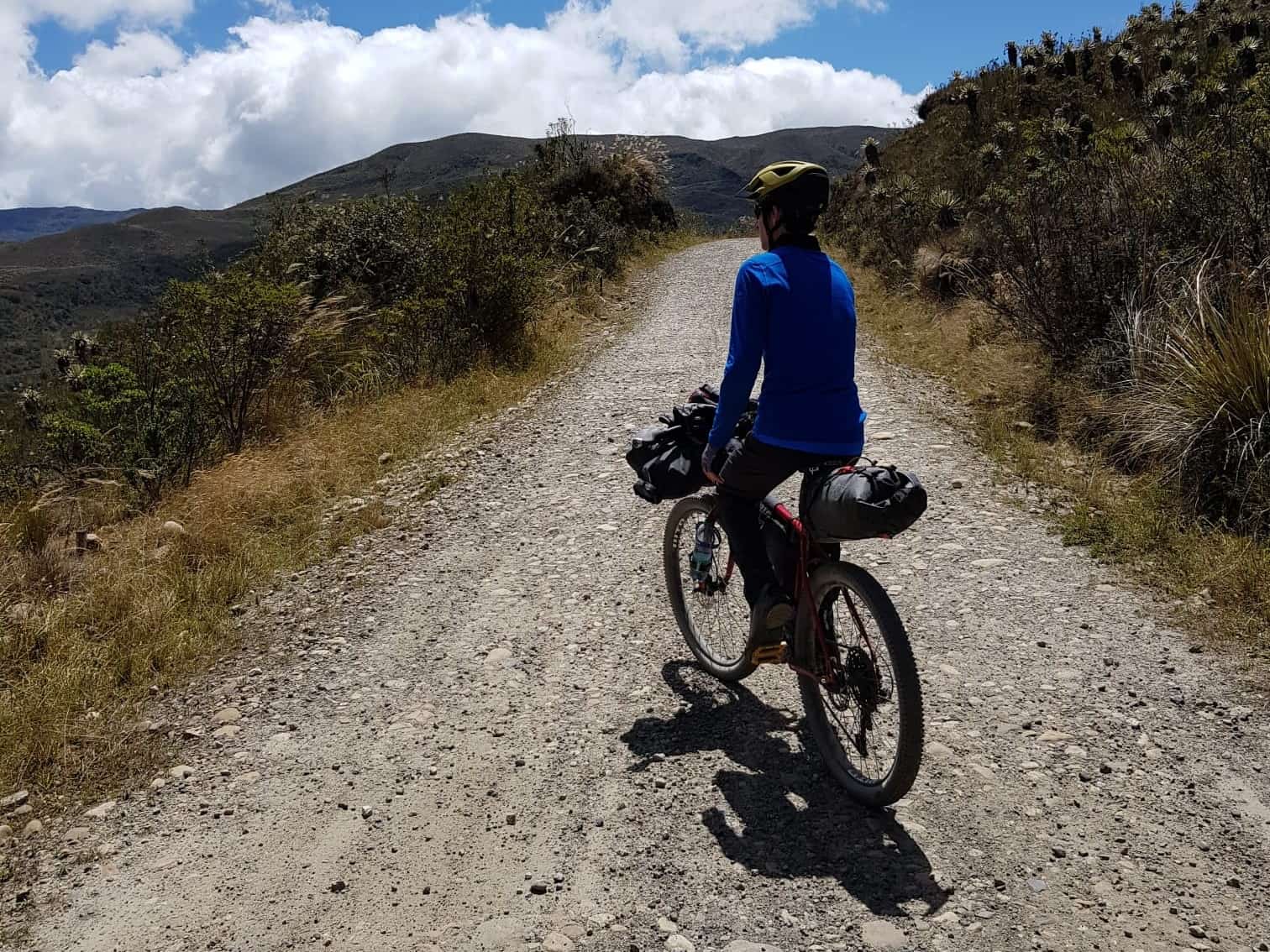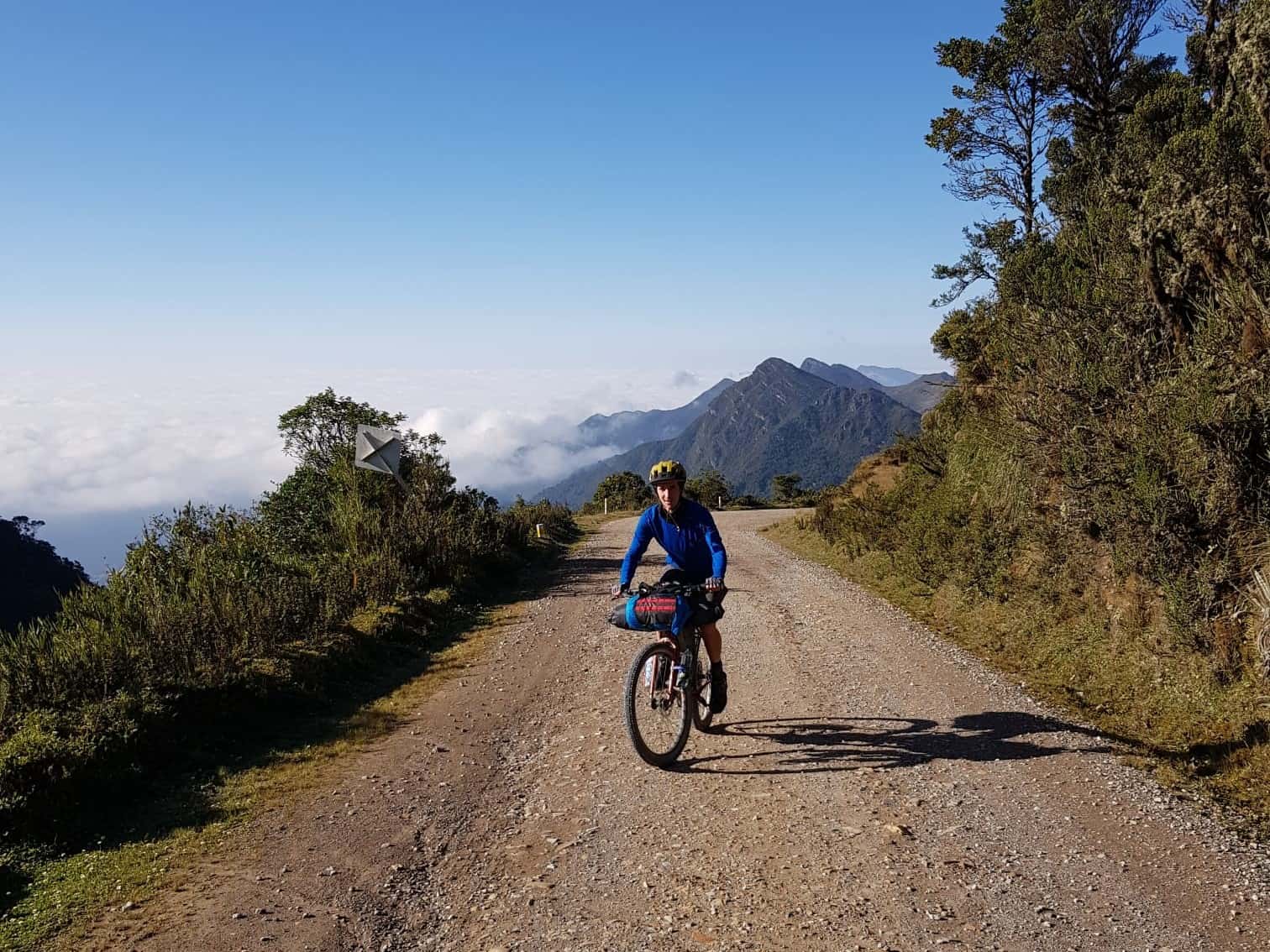Home: Virginia, USA
For Eliot, who was born and raised in Fontainebleau, France, bikepacking is not just about the sport, thrill, or performance – it’s a way of relating to the living world and engaging one’s senses more deeply. While moving through, and being immersed within, a landscape, cycling gives one the opportunity to feel a heightened sense of interconnectedness and reciprocity with nature. Eliot believes in the transformative power of bikes for people, communities, and the natural world. In addition to having a minimal environmental footprint, coupled with the many other obvious environmental benefits that come with cycling (vs. other means of transportation), bikes enrich lives in more ways than one, and are a symbol of connection – whether it be between people, places, communities, or one’s own relationship with the land.
Through his work at Conservation International, a global nonprofit environmental conservation organization, Eliot is focused on building projects at the intersection of cycling and nature conservation through the Bikepacking for Conservation Program (BCP), which he co-developed in 2020. At its core, the BCP aims to harness the power of cycling to support nature conservation. With cycling routes that take riders through areas that are not just outstandingly beautiful, but also ecologically vital, the purpose of the BCP is to connect people to the nature on which they depend.
Through the BCP, Eliot, with the support of many others, is working to establish cycling routes that are centered around Conservation international’s work in key landscapes around the world. These bike expeditions will allow people to immerse themselves in scenic landscapes and learn about the work Conservation International and their partners are doing to combat critical conservation issues and secure a healthy, more prosperous world for all. Working in partnership with local communities, local government, sports outfitters, tourism agencies, and other relevant stakeholders, the BCP is centered around three pillars: nature-based cycling routes, immersive storytelling, and community-based tourism.
The pilot route, Ruta Chingaza, traverses key regions and project sites that Conservation International works in throughout the Bogotá Conservation Corridor. Using cycling as a vehicle for innovative storytelling, this route exposes cyclists to their work on Water and Cities; a unique and innovative program to secure formal commitments from the water utility, regional and local environmental authorities, the business community and municipal governments to implement a sustainable watershed business plan that would protect, restore and manage 378,000 hectares of Páramo and other critical ecosystems that are critical to water security in this region, such as Andean jungle and foothill plains. The idea is that anyone cycling the route would come away with a deeper understanding of, and connection to, Conservation International’s work in the region. While Ruta Chingaza is currently closed, the hope is that the route will open to the public in the summer or fall of 2022.
Bikepacking for Conservation Program
Ruta Chingaza: Bikepacking for Conservation



